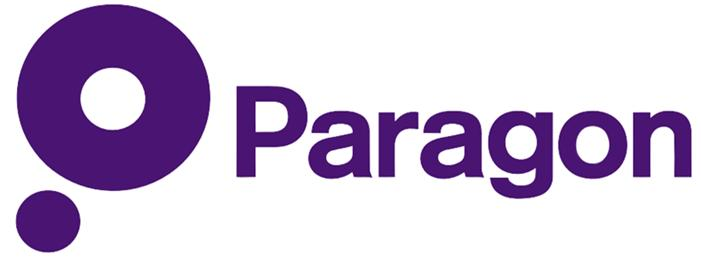
In continued partnership with Paragon, Weightmans’ Compli team – who provide bespoke risk management and compliance consultancy services – have produced a paper discussing some of the key areas of focus for the SRA in 2021.
Those of you who attended the SRA’s (virtual) annual COLP and COFA conference have heard the SRA discuss a number of topics including anti-money laundering compliance, cybercrime, innovation and technology, accounts rules and dubious investment schemes, to name just a few. If you missed any of the talks, they can be found on the SRA’s website.
It’s perhaps no surprise that a number of these topics are included in the SRA’s latest 2020/2021 Risk Outlook, published just a couple of days before the annual conference.
The key focus areas for the SRA (and therefore for you also) for 2021 include:
♣ Anti-money laundering
♣ Client money
♣ Diversity
♣ Information and cyber security
♣ Integrity and ethics
♣ Meeting legal needs
♣ Standards of service
Summarising each of these (which is no replacement for reading the Outlook in full):
SRA Risk Outlook
The key focus areas for the SRA (and therefore for you also) for 2021 include:
Anti-money laundering
The SRA has identified some new anti-money laundering risks arising from the economic and COVID-19 uncertainties, in particular, the surge in instructions during the Stamp Duty Land Tax holiday period, the change from face to face to on-line identification/verification procedures and warns firms to be on high alert for vendor fraud, which is increasing. It also identifies a heightened risk if firms have made money laundering compliance roles redundant and warns those firms who are exploring new areas of work, which might make them more vulnerable to exploitation or those who might consider taking on work they would not otherwise accept in order to maintain their business.
The SRA will be continuing their review of firms’ compliance with the Money Laundering Regulations 2017 in 2021 to check that firms have the right controls in place to mitigate the risk of money laundering including the need to independently audit these controls and procedures. Audit is an area that many firms seem to have neglected, or misunderstood the need for independence. The Legal Sector Affinity Group published its updated anti-money laundering guidance on 20 January 2021 and the SRA Sectoral Risk Assessment was published on 28 January. www.sra.org.uk/new-aml-guidance. If your firm comes within the AML regulations, (and more will now do so following the widening of the definition of ‘tax adviser’) you will need to read the documents, review your firm wide risk assessment and update, where relevant, your AML policies and procedures.
One of our takeaways from the conference was the SRA’s confirmation in the anti-money laundering practical tips webinar, that firms can charge clients for client due diligence electronic searches (provided they are clear and transparent). We have always been of the view that there was nothing wrong with charging for such important risk mitigation steps and it is pleasing that the SRA now appears to have done a U-turn on this.
Client money
Again, the SRA has highlighted that economic uncertainties have increased financial problems for the public and firms, which in turn heightens the risk to client money. It reminds firms that dishonesty and misuse of client money will be dealt with the utmost severity (only last month a solicitor who caused a £885k client account shortfall by using client money to pay his own office fees was struck off). It also provides links to its warning notices and guidance on issues such as use of client account as a banking facility, third-party-managed accounts and taking money from client account for fees.
Diversity in the profession
2021 will see the SRA’s next diversity collection data exercise and the Risk Outlook stresses the importance of having a diverse profession. It anticipates that COVID-19 and the recession “will continue to affect many people’s opportunities to enter and progress in the profession” and “pay gaps, and the stay gap, might widen if firms do not take appropriate action”.
The SRA will be monitoring individuals subject to its enforcement processes by ethnicity, gender, age and disability and will also be commissioning research to understand why there is an overrepresentation of BAME people in the concerns reported to many regulators of the professions in different sectors.
It also directs firms to its Equality, Diversity and Inclusion resources including its toolkit on sexual harassment in the workplace which lists resources to support firms in eliminating bullying and harassment. Given the recent overturning of the high-profile Solicitors Disciplinary Tribunal decision against Ryan Beckwith where the High Court found that the tribunal had been wrong to find that Beckwith had failed to act with integrity in circumstances where there had been no finding that he had taken unfair advantage, we can only hope that the SRA will carefully review its enforcement approach in relation to conduct outside of a solicitor’s professional life where no criminality is involved.
Information and cyber-security
According to the Risk Outlook, nearly £2.5m of money held by firms had been stolen by cybercriminals in the first half of 2020, which was over three times the amount reported in the first half of 2019. The increased reliance on technology due to lockdown has in turn led to a huge increase in phishing scams with ransomware also becoming more serious and, with more people likely to be working from home more regularly in the future, firms are being advised to ensure their security is up-to-date and staff are trained and know what to do in the event of an attack.
Integrity and ethics
In addition to reminding solicitors of the importance of acting with integrity at all times (and warns of the heightened risk of solicitors failing to act with integrity if placed under financial pressure due to the recession and COVID), its main focus in this section is on dubious investment schemes which it says are on the increase. Remember that if a deal seems too good to be true, then it probably is!
Meeting legal needs
Compliance with the SRA’s transparency rules is emphasised in this section of the Risk Outlook. There are still firms whose websites are non-compliant and the SRA will be taking appropriate action in 2021 where necessary.
Standards of service
Firms will need to ensure that any new procedures introduced as a result of COVID, for example how signatures are witnessed or how new clients are identified and verified, are implemented correctly to ensure that the high professional standards expected are met. Diversification of services without having suitably experienced solicitors dealing with the new practice area, reduced staff numbers due to furlough/redundancies, supervision difficulties as a result of working from home and staff being under stress are all risks which firms need to be alert to in 2021. The Risk Outlook also includes a spotlight on the personal injury sector and managing volume claims which all firms involved in these types of claims should review carefully.
Other issues to keep an eye on in 2021:
♣ The introduction of the SQE in the Autumn
♣ Financial stability issues and the importance of effecting an orderly closure if necessary
♣ Professional indemnity insurance renewals – we will remain in a hard market at least for the April 2021 renewal so firms due to renew then should already be looking to address this as early as possible and be in a position to present your firm to insurers in the best possible way
♣ Compliance resource – the SRA has seen during the pandemic that some compliance officers have increased the time they spend on fee earning rather than compliance tasks and has stressed that this must not lead to issues and firms must maintain compliance and keep their systems and controls in check. If you are one of these firms, now is the time to consider outsourcing so do get in touch if you need more support in this area.
This article has been written by Michelle Garlick of Weightmans LLP’s Manchester Office. If you have any questions about Paragon, Weightmans, Compli and their services or the above article please do not hesitate to get in touch.
Martin MacHale
E mmachale@paragonbrokers.com
T +44 (0)20 7280 8209
M +44 (0)7854 314 344
Ryan Senior
E rsenior@paragonbrokers.com
T +44 (0)20 7280 8254
M +44 (0)7827 575 652
This article is published without responsibility on the part of the author or publishers for any loss occasioned by any person acting or refraining from action as a result of any views expressed in the article. Specific risk management advice requires detailed knowledge and analysis of firm and practice area facts relating to the risk. The information included in this article cannot and does not attempt to satisfy this requirement for any of its readers.
